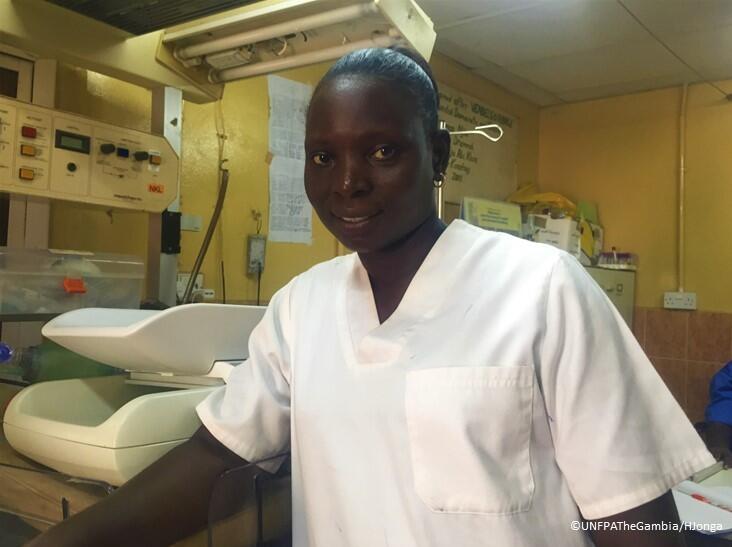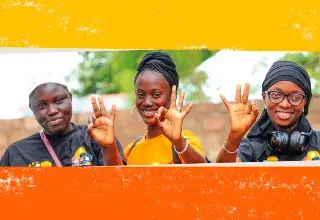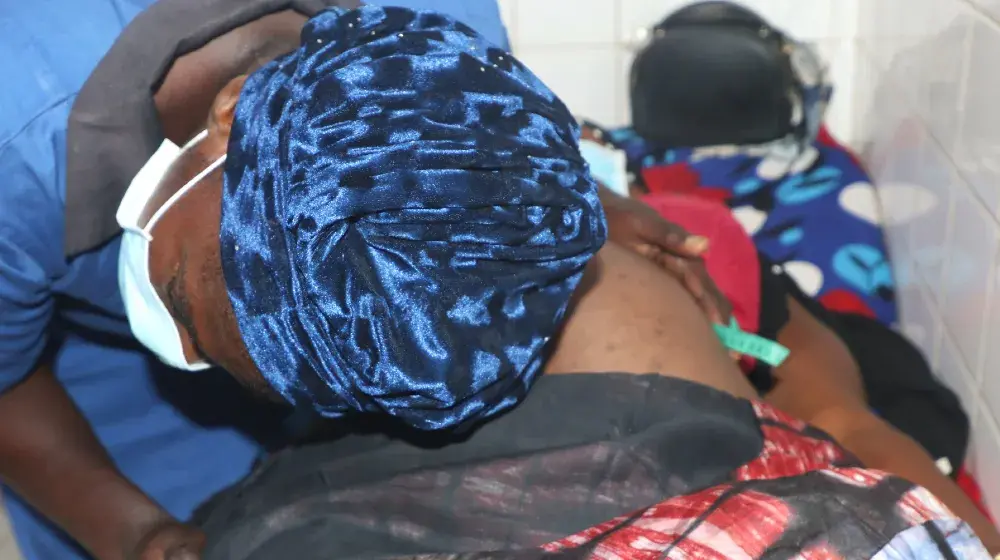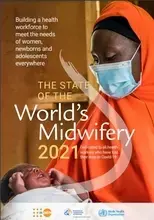“I love being a midwife. I used to be a general practicing nurse but I later built interest in helping women bring their bundles of joy into the world. This was why I went back to study midwifery.”
These were the words of Diminga Mendy, a midwife at the Sukuta Health Centre, in the Kombo North District of The Gambia’s West Coast Region. The facility, situated in the small town of Sukuta, about twenty-two kilometers from the capital city, is one of the busiest public health facilities within the district, recording an estimation of over 500 deliveries per month.
Of course Midwives – and people with midwifery skills – are the main caregivers for women and their newborns during pregnancy, labour, childbirth and in the post-delivery period. However, it takes passion and love for the profession, to be able to selflessly serve. This is what Diminga and many of her colleagues at this facility, do on a daily basis.
On Tuesday November 13th the UNFPA The Gambia team embarked on field visits to health facilities within the West Coast Region, to see the conditions of the labour wards and to donate maternal life-saving equipment, including Vacuum Extractors, Fetal Heart Dopplers, Blood Pressure Machines and Stethoscopes. This, is part of many efforts to support health facilities to deliver at least Basic Emergency Obstetric and Neonatal Care (BEmONC) services.
On our stop at the Sukuta Health Centre, we met Diminga, performing her daily tasks, going in and out of the labour ward and rendering assistance to the women and their new born babies. Having seen the equipment, we brought with us, the excitement she expressed with her colleagues could not go unnoticed. “These came at the right time. Having all the equipment we need, makes our job easier.” were the words they uttered as we presented the material to them.
Four the past eight years, Diminga has supported the delivery of thousands of babies at this facility, living her dream and helping save the lives of women. According to her, midwifery is her calling; her duty to serve humanity through the profession and to ring back hope in our health care systems as far as maternal health is concerned. Thus, since her graduation from the Gambia College’s School of Nursing and Midwifery in 2010, she has directed her energy and passion to helping save the lives of women and supporting them through their pregnancy and motherhood journeys.
It goes without saying that, well trained midwives can provide comprehensive sexual and reproductive health information and services, including antenatal, safe delivery and post-partum/post-natal care, because they offer one of the most cost-effective and culturally sensitive paths to achieving universal health care. Yet, midwives continue to face numerous challenges in delivering their services, including lack of adequate and properly-functioning equipment to support their work.
In The Gambia, between 50% - 74% of births are attended to by skilled personnel including midwives. As such, there is a need to build the capacities of midwives as well as to provide them with the necessary equipment they need to perform their daily duties because #MidwiveSaveLives!
For more information, contact:
Haddy Jonga
Programme Analyst, Communication
UNFPA The Gambia
Tel: +220 3303073
Email: jonga@unfpa.org





